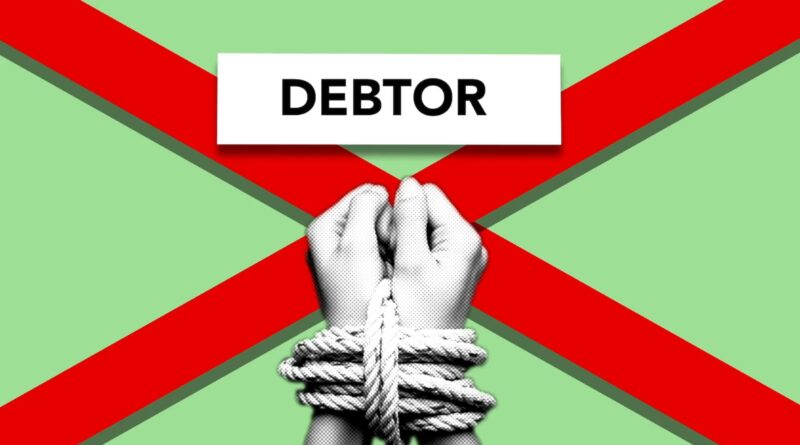Quick Tips for Dealing with Difficult Debtors in Collection Cases
When it comes to debt collection, dealing with difficult debtors can be a daunting task. Whether you’re a private lender or a real estate investor, navigating these challenging collection cases requires expertise, strategy, and a firm understanding of the legal and tax implications involved. In this article, we’ll provide you with valuable quick tips and tricks to help you handle difficult debtors effectively and increase your chances of successful debt recovery.
Understanding the legal framework is essential when dealing with debt collection. By familiarizing yourself with the laws, regulations, and procedures governing debt collection in your jurisdiction, you can ensure compliance, protect your rights, and navigate the collection process with confidence.
Maintaining accurate documentation is another crucial aspect. Detailed records of communication, transactions, and agreements with debtors serve as valuable evidence and strengthen your position in collection cases.
Additionally, effective communication, offering flexible payment options, and knowing when to seek legal assistance are key strategies in dealing with difficult debtors. By employing these quick tips and tricks, you’ll be well-equipped to handle challenging collection cases, maximize your debt recovery success, and protect your interests as a creditor.
Tips for Dealing with Difficult Debtors
1. Understand the Legal Framework
Before initiating any debt collection efforts, it is essential to have a solid understanding of the legal framework governing debt collection in your jurisdiction. Familiarize yourself with the laws, regulations, and procedures relevant to debt collection to ensure compliance and protect your rights as a creditor.
2. Maintain Accurate Documentation
Keeping detailed records of all communication, transactions, and agreements with debtors is crucial. Accurate documentation serves as valuable evidence in collection cases and can help strengthen your position. Retain copies of invoices, contracts, emails, and any other relevant documents related to the debt.
3. Communicate Clearly and Professionally
When engaging with difficult debtors, it is important to maintain professionalism and clarity in all your communications. Clearly state the debt amount, payment deadlines, and the consequences of non-payment. Keep a record of your communication efforts, including phone calls, letters, and emails.
4. Offer Flexible Payment Options
Consider offering debtors flexible payment options to facilitate timely debt repayment. Negotiate payment plans that suit both parties, taking into account the debtor’s financial situation. This approach increases the likelihood of successful debt recovery while maintaining a positive relationship with the debtor.
5. Know When to Seek Legal Assistance
If a debtor consistently fails to cooperate or disputes the debt, it may be necessary to seek legal assistance. Consult an attorney experienced in debt collection to assess your options, file lawsuits if needed, and represent your interests in court. Legal guidance can help you navigate complex collection cases effectively.
6. Be Mindful of Debt Collection Laws
Debt collection practices are subject to specific laws that protect debtors from harassment and unfair practices. Familiarize yourself with these laws to ensure you stay within legal boundaries. Violations can result in legal consequences and damage your reputation as a creditor.
7. Consider Debt Settlements
Debt settlements can be a viable option when dealing with difficult debtors. Explore the possibility of negotiating a reduced debt amount or a payment plan that works for both parties. Debt settlements can help you recover a portion of the debt and avoid prolonged legal battles.
8. Utilize Professional Debt Collection Agencies
If handling debt collection in-house becomes overwhelming or unproductive, consider partnering with professional debt collection agencies. These agencies specialize in debt recovery and have the expertise to deal with difficult debtors effectively. They can save you time and resources while increasing your chances of successful debt collection.
9. Stay Persistent but Professional
Dealing with difficult debtors requires persistence, but it is crucial to maintain professionalism throughout the process. Be consistent in your efforts, send reminders, and follow up on outstanding debts. Persistence combined with professionalism can yield positive results in debt recovery.
10. Know Your Limits and Prioritize
It is essential to know your limits and prioritize your collection efforts. Concentrate on cases with higher chances of success and those that align with your business objectives. Devote your time and resources where they will yield the best return on investment. Assess each case strategically and make informed decisions regarding the allocation of your collection resources.
Examples:
Let’s consider a real-life scenario to better understand the practical application of these quick tips:
Example: Negotiating a Payment Plan
Suppose you have a difficult debtor who consistently avoids your attempts to collect a substantial debt. By implementing the tips outlined above, you can improve your chances of success:
- 1. Understand the Legal Framework:
- By familiarizing yourself with debt collection laws and regulations, you can ensure compliance and protect your rights throughout the collection process.
- 2. Maintain Accurate Documentation:
- Keeping detailed records of your communication, transactions, and agreements with the debtor will provide essential evidence in case of disputes or legal proceedings.
- 3. Communicate Clearly and Professionally:
- Clearly stating the debt amount, payment deadlines, and consequences of non-payment will help the debtor understand the seriousness of the situation and encourage timely repayment.
- 4. Offer Flexible Payment Options:
- Working with the debtor to establish a realistic payment plan can make the debt repayment process more manageable for them while ensuring you recover the owed amount.
- 5. Stay Persistent but Professional:
- Following up regularly and reminding the debtor of the outstanding debt demonstrates your commitment to debt recovery while maintaining professionalism and respect.
By combining these strategies, you can increase the likelihood of the debtor agreeing to a payment plan and resolve the collection case more effectively.

Additional Steps to Enhance Debt Collection Success
In addition to the ten quick tips mentioned above, here are two more steps to consider when dealing with difficult debtors in collection cases:
11. Conduct Proper Due Diligence
Before extending credit or entering into financial agreements, conduct thorough due diligence on your potential debtors. Assess their creditworthiness, financial stability, and past payment history. Proper due diligence can help you identify high-risk debtors and avoid potential collection issues in the future.
12. Establish Clear Terms and Conditions
When engaging in financial transactions, clearly define the terms and conditions of the agreement. Include provisions related to payment terms, interest rates, penalties for late payments, and dispute resolution mechanisms. Establishing clear terms and conditions helps prevent misunderstandings and provides a strong foundation for debt collection if issues arise.
Take Action Now and Improve Your Debt Collection Success
Dealing with difficult debtors in collection cases can be challenging, but with the right strategies in place, you can navigate these situations more effectively.
Remember to understand the legal framework, maintain accurate documentation, communicate clearly and professionally, and consider alternative options such as debt settlements or professional debt collection agencies when necessary.
By applying these quick tips and tricks, you can enhance your debt collection success rate and protect your interests as a private lender or real estate investor. Start implementing these strategies today and share your success stories with us. We would love to hear about your experiences and any additional tips and tricks you may have discovered along the way.
Have you faced challenging debtors in your collection cases? Share your stories and strategies with us!
